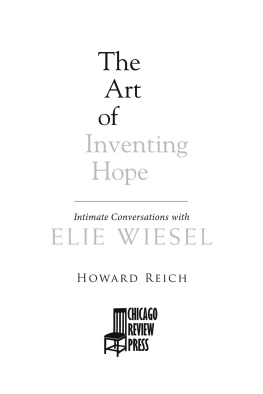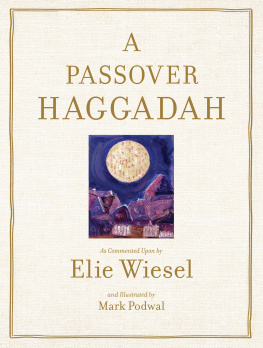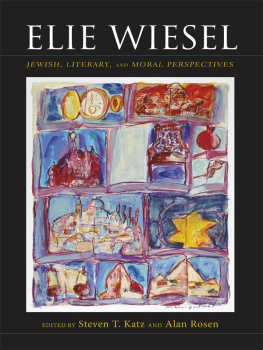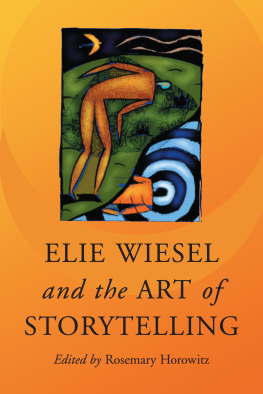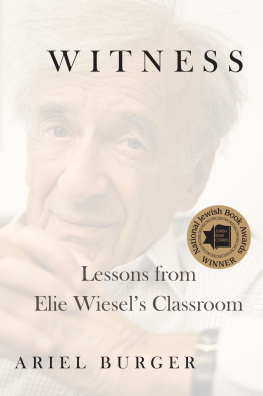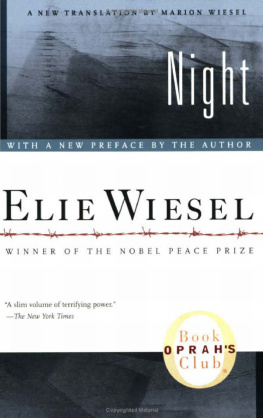For Pam Becker, my wife, who makes all things possible.
And for Amanda Abramovitz, my niece,
the next writer in our family and the inheritor of its story.
Preface
W e are sitting alone together on the stage of Orchestra Hall in Chicagoupward of twenty-five hundred people in the audiencebut neither one of us was supposed to be here. Or anywhere.
Elie Wiesel was marked for death in Auschwitz-Birkenau and later, at the end of the war, in Buchenwald. My father, Robert Reich, very nearly died of beatings, typhus, and starvation in various concentration camps, his ordeals also culminating in Buchenwald.
But these two menwho perhaps brushed past each other in a place that held some of the last Eastern European Jews still alive early in 1945somehow survived, making possible many other lives, including my own.
And so Wiesel and I find ourselves onstage on a sunny and crisp November morning in 2012 as he receives the Chicago Tribune Literary Award, an honor given by the newspaper where I have worked my entire career. With the audience hushed and not a single cell phone daring to go off, Wiesel answers my questions, telling me and an obviously intrigued audience his story, which ultimately is my story and the story of all children of survivors.
For most of my life, I never knew the tale. My father, who died in 1991 at age sixty-nine, said very little about what happened to him during the war, and my mother, Sonia Reichalso a survivoreven less. This was not a subject much discussed in the 1950s, when I was growing up. Yes, survivors talked to each other constantly about their tragediesin Yiddish, Hebrew, Polish, Hungarian, German, Russian, broken English, and whatnot. Practically every conversation, they have told me since, sooner or later (and usually sooner) circled back to life and death in the camps, to grieving those who were lost, to the worlds staggering indifference. But rare was the parent who sat a child down and conveyed what had occurred.
How could they? How could they possibly have put into words the horrors, fears, traumas, and chaos that words had no chance of containing?
And yet somehow Wiesel managed to capture a sense of the darkness and dread of what he simply and starkly calls the Experience, in his book Night and in many less-familiar works as well, most notably The Gates of the Forest, The Fifth Son, and The Forgotten, and in his two volumes of memoirs, All Rivers Run to the Sea and And the Sea Is Never Full, plus dozens of articles and speeches.
Until three months before our conversation in Orchestra Hall, however, I hadnt read a word of these works, or anything else by Wiesel. Holocaust literature was not required reading when I went to school, and anyway, I had gone out of my way most of my life to avoid the subject. It was too frightening, too onerous, too unspeakable, too incomprehensible, too tautly wrapped up in pain and guilt and morbidity for me to touch. I feared it. I froze whenever I heard the H word.
But something happened on the night of February 15, 2001, to abruptly change all of that and, in a way, to lead to my very public conversation with Wiesel. My mothers Holocaust pastabout which she had told my sister and me perhaps three sentences as we were growing upreemerged on that freezing February evening. Believing killers were pursuing her again, my then sixty-nine-year-old mother packed two shopping bags full of clothes and fled the little house in which she and my father had raised us in the Chicago suburb of Skokie, a nexus of Holocaust survivors. After roaming the streets for God knows how long, my mother was picked up by the local police, to whom she insisted someone was trying to put a bullet in her head, she said.
In effect, she had begun reliving her Holocaust. It took a year for me to find a doctor who diagnosed what should have been obvious to all the psychiatrists who brushed her off: she was suffering from post-traumatic stress disorder, and no one recognized it. Not even me. Her past was coming back to haunt her, in the form of delusion.
Or maybe I shouldnt call it delusion, since once it really did happen.
Suddenly the terrible subject that I had worked so assiduously to avoid all my life was staring me in the face, and there was no avoiding it anymore. I had to get help for my mother, and I needed to find out not only why she was reenacting her childhood in flight but also what had happened to her. It turned out that there was nothing that could be done to alleviate my mothers terrors, but I certainly could vow to find their source.
My search took me to Warsaw, where I discovered the family my mother never told me about, and to the tiny village of Dubno, now in Western Ukraine but then in easternmost Poland. I learned that of the twelve thousand Jews who had lived in my mothers town before the war, fewer than one hundred were believed to have escaped machine-gun killings conducted by the Nazi Einsatzgruppe Cthe same band of executioners that would kill many more en route to the notorious massacre at Babi Yar.
Somehow my mother had escaped this death, spending her adolescence running and hiding from a society determined to kill her for being a Jew. Afterward, in the United States, she tried to put her past behind her as much as possibleuntil it erupted anew on that February night in 2001.
Im sure it was because of my writings on my mothers story and on those of other survivors that the Tribune asked me to conduct the public interview with Wiesel, our lives now linked not just by the Buchenwald past he shared with my father but also by my quest to learn morewhich, of course, had been his mission all along. In a way, our meeting was well timed, if you can say that about anything related to the Holocaust. For though I eventually learned nearly everything possible about my mothers past (short of her telling me in her own words, which she clearly could not), I now had more questions than when I started out.
I wondered how my parents and the others endured. Where did they find the strength to start over? How did they cope with the overwhelming destruction of their families, friends, and shtetls? Why did almost no one help them? How was it possible to believe in God after the Holocaust? Or during? Why did the survivors have children? Why didnt the world want to hear the survivors stories after the war?
And what were we, the children of the survivors, to make of all this? What did we lose by not having grandparents? What do we do about the stories we never heard? How do we deal with the guilt of knowingor imaginingour parents suffering? How do we manage being involuntary inheritors of tragedy, grief, and heroism? How has this legacy affected us? How should we speak of the Holocaust today? What is our responsibility? What do we tell our children? What do we do with this legacy if we have no children?

